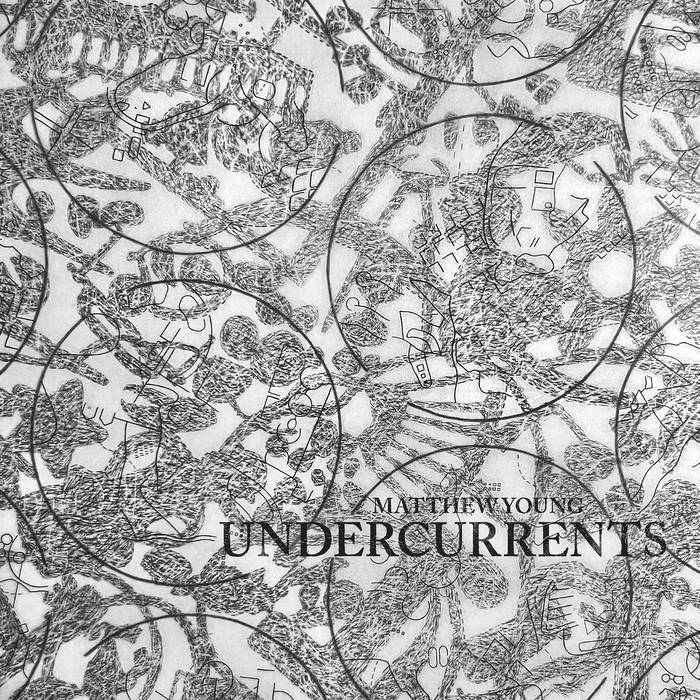It is a rarity that an album has the effect of making the listener question the essence of linear time. Here you are offered incantations, tissue-like layers, faint ghosts in the machine, each listen unfurls something nuanced in the ear. Distant conversations, the sense of a thumb over a phone speaker, or the hearing of things from a distant window, are mixed on selected tracks with a distinct yearning, an undulant voice. This work feels like the unreliable, fragmented nature of memory itself and how instead, like the tides, we ebb, flow, turn and retreat.
Matthew Young reminds us of these portals we create, and that our experiences are not a facsimile even when something is experienced in unison. The golden thread throughout almost all of these tracks is Young’s dulcimer playing – an almost constant – feeling like both our wandering and circuitous thoughts. This instrument, played as well as Young does, becomes a delicate enigma. The whole of Undercurrents resists simplistic compartmentalisation and somehow suspends and stretches time.
Young released two albums in the 1980s then disappeared from view until Drag City started reissuing his old material in the 2010s. It would be easy to fall into the nostalgia game here – artists lost to the annals of time, cloistered away and dusty waiting to be ‘re-discovered’ by an eager gem hunter. We are familiar, too, with a debut album that gathers acclaim so fiercely it becomes impossible to create anything in its leering wake and the listener cannot shake its phantoms. All that is resisted here and we instead find that Undercurrents is very much alive, multidimensional, personal and fragmental, each track a completely different charm on a chain. It really seems to breathe.
The sepia-soaked ‘Summer Girls’ (setting a poem written by Young’s aunt, Marion Lineaweaver) is brought into immediacy by the composer’s sleight of hand. In his tremulous voice, we find ourselves standing side by side with the protagonist of the poem, which brings a piquant feeling of freedom, sadness, and the resulting breaking of a spell, bringing what is transient to its inevitable end: “The girls leaned onto the windowsills, and laughed into the summer mornings … the bell rang in the august rain”.
‘Summer Girls’ is a circular tone poem, journeying through the seasons as we are pulled along the streets with the storyteller like a hand-turned music box’s spool. ‘Reflexion’, by contrast, feels like a staccato journey by train through a surreal cityscape. I am reminded here of the particular sensation of light flickering behind the eyelids as scenes speed past zoetrope-like. A hand draped out of an open car window coddled by warm air. It is as sensorial as it is minimalist and delicately cog-like, the sparse soundtrack of a film that haunts the frame.
Perhaps the most intriguing track on the album is ‘A Game Of Chess, A Game of Chance’ where minimal shards like synths have ensembled in a cave in a circle of ritual animalistic prowling. Perhaps Young is somehow suggesting our individual electronic imprints will come back to haunt us all. But ‘Into the Woods’ is the track that really breaks away from the current. It is almost medieval in form and tonally bright, and arguably the most transportive track here, like listening to rainfall under a corrugated tin shack. A symphony of movement and activity from the mycelium of the forest floor to the swaying canopy above veer sharply into view. As I play this with my window open, several times on repeat, I realise the starlings in the eaves outside are mimicking its sound as if caught up with its myriad patterns hammered out on resonant strings.
The takeaway from Undercurrents is that this album doesn’t try to fill the spaces with awkward meaningless conversation. Instead, it splits the particle to reveal what writhes and coils within. The back catalogue beckons now, but there is more than enough to be content with here in this shifting sea fret and intertidal flow.


